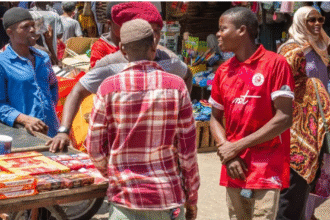By Esther Edoh
Berlin, Germany – Following a WTA report detailing widespread online abuse against nearly 500 female tennis players, World No. 2 Coco Gauff is urging social media platforms to take more decisive action against online perpetrators. The French Open champion described the nature of the abuse as “gross” and highlighted the urgent need for platforms to step up and protect athletes from the barrage of hateful comments.
The WTA Tour, governing body of women’s professional tennis, released a report on Tuesday outlining the alarming extent of online abuse directed at players. The report, compiled with data from tech company Signify Group using AI, identified approximately 8,000 “abusive, violent or threatening” comments sent to 458 players in 2024 alone. Disturbingly, a significant portion of the abuse originated from disgruntled gamblers, with 15 cases escalating to the point of law enforcement intervention.
Speaking at the German Open in Berlin, Gauff acknowledged that dealing with online abuse has become an unfortunate “given” for players. She detailed the severity of the comments, stating, “It’s the worst you can get. Death threats, to your family, to yourself. I’ve had people DM [direct message] my boyfriend and friends about it. Racist comments, like all you can imagine. Nudity, things like that. It’s a gross kind of thing that we have going on in tennis.”

The WTA report called on the gambling industry to take responsibility and identify individuals behind the abuse. However, Gauff emphasized the crucial role social media companies must play. “It’s something that we have to keep bringing awareness to,” she said. “I would love for some of the social media platforms to get involved, not only when it comes to tennis players. Influencers, other athletes, they all get these comments, so it’s something that can be addressed. I know the WTA is doing what they can to make us feel protected, but I definitely think that a lot of these platforms can step in as well.”
When asked if she was optimistic about potential change, Gauff expressed hope. “I feel like they can,” she asserted. She pointed to TikTok as an example of a platform with better comment filtering, contrasting it with Instagram. “But Instagram is, for me, the worst with the comment filtering. I see basically everything on there. I try to do it on my own account, to filter certain words, but people get creative and spell it out in different ways.”
Gauff stressed the need for a more robust system to prevent repeat offenders. “For me, it’s more about banning these accounts and banning people with the same phone number or email from making new accounts. You can block [them], but they just go and make a new account. There has to be a way to fix that system.”
The issue of online abuse extends beyond mere words, with lines blurring between the virtual and physical world. The recent case of a man accused of stalking British tennis player Emma Raducanu being barred from purchasing Wimbledon tickets highlights the very real dangers faced by athletes.
While Gauff admitted she had never experienced anything “threatening,” she recounted an incident where someone attempted to follow her home. The heightened security presence at the German Open, with guards behind the players’ benches and during press conferences, underscores the seriousness of the issue and the increasing need for protection in both the online and offline realms. Gauff’s plea serves as a powerful call to action for social media companies to prioritize the safety and well-being of athletes facing relentless online harassment.









